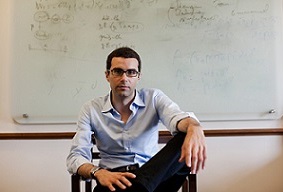Program > Keynotes lectures
Inaugural Lecture: Rachel Griffith, IFS and the University of Manchester
Monday, 19 11:15 - 12:15pm |
|

|
Rachel Griffith is a Professor of Economics at The University of Manchester. Her research focuses on applied economic analysis of the impact of government policy on economic performance; competition, innovation and productivity; firm pricing behaviour; consumer shopping patterns and nutrition.
|
| Topic : "Do sin taxes work?"
Abstract : Sin taxes are used by governments with the aim of reducing consumption of products that are potentially harmful to people, with alcohol and cigarettes being leading examples. Soda taxes are an increasingly popular form of sin tax, with France being amongst the first to introduce such a policy. They are aimed at reducing sugar consumption, which is thought to be an important contributing factor to rising rates of obesity and other diet related disease. In this lecture I will consider recent developments in the use of sin taxes, particularly as they related to sugar, and relate these to the optimal tax literature to consider the conditions under which these sin taxes could be well targeted at reducing consumption amongst problem consumers. A major concern about sin taxes is that they are often thought to fall disproportionately on lower-income households, and I will discuss evidence on this, and what we know (and don't know) about the overall welfare effects of these taxes.
|
Jean-Jacques Laffont Lecture: Emmanuel Farhi, Harvard University
Tuesday, 20 10:50 - 11:50am |
|

|
Emmanuel Farhi is a Professor of Economics at Harvard University. His research focuses on macroeconomics, finance, international economics, and public finance.
|
| Topic : "A Model of the International Monetary System"
Abstract : Emmanuel Farhi will present a paper co-authored with Matteo Maggiori from Harvard University, in which they propose a simple model of the international monetary system. They study the world supply and demand for reserve assets denominated in different currencies under a variety of scenarios: A Hegemon vs. a multipolar world; abundant vs. scarce reserve assets; a gold exchange standard vs. a floating rate system. They rationalize the Triffin dilemma, which posits the fundamental instability of the system, as well as the common prediction regarding the natural and beneficial emergence of a multipolar world, the Nurkse warning that a multipolar world is more unstable than a Hegemon world, and the Keynesian argument that a scarcity of reserve assets under a gold standard or at the zero lower bound is recessionary. They offer both a positive and a normative analysis.
|
Presidential Address: Philippe Aghion, Collège de France and President of AFSE
Wednesday, 21 11:00 - 12:00am |
|

|
Philippe Aghion is a Professor at the Collège de France. His research focuses on the design of growth policies and the role of the state in the growth process.
|
| Topic : "Firm Dynamics and Missing Growth in France"
Abstract : In his presidential address, Philippe will present a recent research co-investigated with Antonin Bergeaud (Banque de France), Timo Boppart (Institute for International Economic Studies, Stockholms Universitet) and Simon Bunel (Paris School of Economics). They use plant level data from France over the period 2003-2013 to analyse the entry, exit and life cycle of plants and in particular the relationship between plant age and plant size. They then use this information to estimate the missing growth predicted by the Schumpeterian growth model.
|
|



